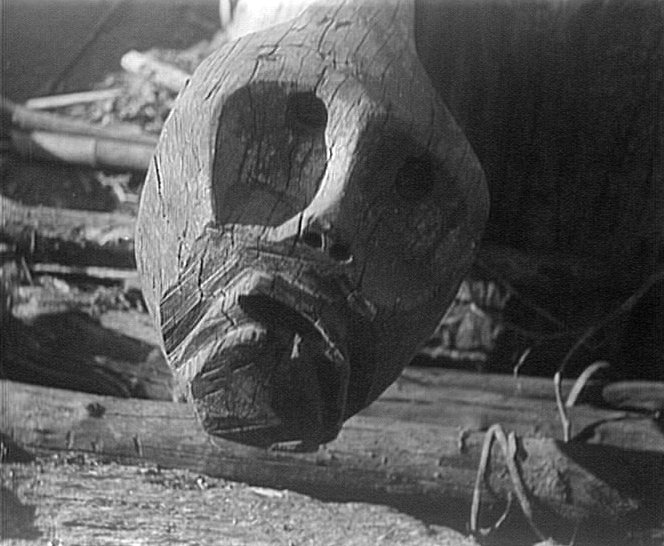This account of Feast of Merit at Ungma 1947 is extracted from Mildred Archer’s Diary dated 9th October 1947.
Yesterday we went to a Feast of Merit in Ungma village. It was the third day, the climax of the celebrations, when the mithan is sacrificed at night. We went at dusk, when the clans of the man and his wife, the donors of the mithan, were dancing round and round the massive beast. It was tethered by a great cane halter to a post in the village street, and as the chanting ring proceeded slowly round, it reclined aloof and unconcerned.




Womens Dance
The decor was like a wild ballet. Against the sombre brown background the women moved vivid and precise in their deep scarlet cloths. As they slowly swayed, shell and cornelian necklaces clashed and brass bells, slung from the shoulder to knee, jangled and tinkled. Scarlet and orange flowers and sprays of green and black wispy feathers nodded in their ears. They moved with careful poise, balancing brass horns, cornelian chaplets or little crowns of scarlet berries on their sleek hair. The wives of the rich bore great hornbill feathers, two or even a dozen, in a barbaric halo perched on a looped bun of hair.




The beauty lay not only in the whole effect, but in the small detail; the weave of the cloth, the golden-bobbled edging to the skirt, the fantastic bunches of feathers, a red wool tassel on a black quill or a touch of pink on a curling green plume.

Men’s Dance
The men danced behind the women, in an outer ring, adding their bass to the harsh resonance of the women’s voices. It sounded like plain song in a cathedral as the rich song rose and fell. The men were resplendent in their war dress; hornbill feathers springing from bear-skin circlets, red and yellow gauntlets, tapering conch-shell beads, boars’ tushes, cowrie aprons and in the ears great wads of white cotton wool. As they circled round the crouching mithan, the men brandished their spears, while the women shook red-plumed daos and waved fans of fresh green leaves in a rising and falling rhythm.
Suddenly a young buck leapt forward and with whooping cries that rose above the monotonous chant, cut and thrust at the mithan in stylised pantomine. As he leapt and whirled, the chorus too whooped and yodelled with faint memories of old war cries and then the voices fell back to the slow dull chant.
A jostling crowd pressed round the ring; small girls dressed like their mothers solemnly balanced their cherry chaplets and feathered ear tufts, while small boys swaggered in and out with scarlet fringed baldricks and jangling conch shell beads. Behind the young, squatted the elders, puffing at their pipes, huddled in their indigo and deep red wraps.
For all it was a glorious break in the hard year’s work, a brilliant spectacle, and for two clans the promise of rich meals to come. For the dancers it meant the flaunting of status, for every detail, whether cloth, bells or hornbill feathers, proclaimed the exact status of each man or woman. For the Ao, life is no humdrum aimless routine, but a movement in a social scale through the sacrifice of cock, pig and mithan. In the end, the sacrificer of many mithan, can proudly stand with feathers and banded cloak in front of his carved house, the cynosure of village eyes.
Donor of the feast



While the monotonous dance proceeded, the donor of the mithan strode down the street in his new cloak with his feathers silhouetted against the setting sun. He was followed by his wife and two friends, all in their ceremonial dress. He broke through the ring and stood beside his mithan, which six months ago he had bought for almost three-hundred rupees and which he had carefully reared for the great day.
Taking Omens
Holding a cock between his hands, he pretended to pluck it alive, calling out in a high-pitched cry for the prosperity of his ancestors and the whole Ao country to come upon him and his house. Then he threw two leaf-cups of rice beer upon the mithan, and his friend speared the cock with a sharp bamboo, slit it open and consulted the entrails for omens. The dead cock was then tied to the post above the mithan, the donor strode back to his house and the sun set.
We lingered on watching the dance until it was quite dark. Then, by the light of a lamp, we walked home through the silent forest, our giant shadows striding before us.
Also Read:

Courtesy: Longshim.com
Subscribe to our newsletter









